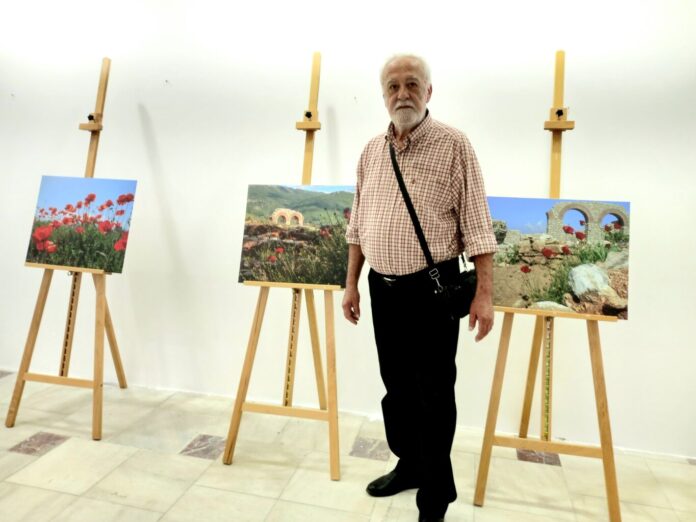Parisa Liljestrand: The criticism of me consists of free fantasies and inferior dream interpretation

The legendary political editor at Svenska Dagbladet, Håkan Hagwall, often used to point out that a leadership writer « does not always have to be right, but never ever get wrong ». By this, Hagwall believed that the views in a leadership text are happy to divide the readership, but that the fact -based information on which a text is based must be accurate and factual. Opinions are allowed to scrape, but facts should have a consensus around.
It’s hard not to think about the winged words during a reading By leadership writer Max Hjelms, to say the least, creative cultural political analysis.
Nowhere do I find Namely, some evidence of the view that I, and now I quote Hjelm verbatim, « dream of artists who cannot be happy ».
What government decisions do Hjelm refers to here?
What texts I wrote?
What numbers I held?
The government has not made any decisions about my dreams (thankfully for that!)
On the contrary, throughout the term of office, with a parrot’s stubbornness, I have repeated that art and culture must be allowed to scratch and challenge, but that it can also act as a unifying force in a society, especially in times of concern. It is not something that I – what Hjelm strangely claims – discovered in Ukraine, although the power of culture that putty in society becomes extra clear when visiting a country that so bravely stands up against the Russian aggression.
I don’t expect That leadership writers who think about politics should read and listen to everything that politics produces in the form of texts and speeches, but if you are unsure of what a politician thinks and thinks in a question then you can actually make contact to get a comment.
It is a tip in all well -being, as it allows sweeping hints and a general attribution of opinions to be avoided.
It is quite strange to clump me and the government with « the conservatives’ criticism of the artwork in memory of the victims of the terrorist act on Drottninggatan. When I click on the link in Hjelm’s article, I see that he quotes his colleague Lisa Magnusson, who in turn quotes leadership writers at Svenska Dagbladet and Gothenburg Post. I should not interfere with discussions that leadership writers have with each other, but I have neither said bu nor bä about the artwork. It would be extremely inappropriate in my role as Minister of Culture to review that kind of publicly funded art, since unlike some of my representatives I believe in this with arm’s length.
However, I appreciate Max Hjelm’s descriptions of Per Anders Fogelströms and Vilhelm Moberg’s great authorship. Both are prime examples of literary creation that both scratched and united. However, I will willingly admit that I have a little trouble understanding why they are used as an example when criticizing the government’s cultural policy? Here I think that Max Hjelm is obliged to show on legislative proposals, budget measures or regulations that clearly show that the government in some way tried to counteract this type of authorship.
Who are my « likes » in this context?
Hjelm can at the same time take And show what practical measures, and now I quote Hjelm verbatim, « Minister of Culture and her likes » taken in terms of what Hjelm refers to as « pillow art ». I am looking for and looking, but I actually find nothing to show that the government distributed grant or changed in regulatory letters with such a stated purpose. What government decision is what Hjelm refers to here? And who are my « likes » in this context?
I, who once moved from a state where people were not allowed to express themselves freely and where art and culture were censored, put a huge pride in being Minister of Culture in a country where art can both be encouraged and encouraged to provoke norms and power structures. However, this does not mean that I do not see and appreciate culture that contributes to social community. It is actually possible to keep these two thoughts in your head at the same time. And it is also possible to talk about culture that binds together as anything but « pillow art ».
One thing that I definitely Know that the government has not made any decisions about is my dreams (thankfully for that!). So when Max Hjelm claims that I fantasize about artists who cannot glare, then it is neither serious journalism, creative analysis nor innovative opinion formation.
It is just inferior dream interpretation and free fantasies.
Max Hjelm answers directly:
I am pleased that the Minister of Culture wants the culture to « get to scratch and challenge ». But Parisa Liljestrand (M) has, with the stubbornness of a parrot, repeatedly repeated that in these times the culture « rather has a power to unite ».
Nor does she want to admit that cultural policy is a joint project with SD, among others. It sounds like in the replica that Liljestrand is completely alone in her politics, even as she feels insulted by being put in the same company as the time project that her party formed government from the outside. A project that colors politics – which now focuses on cultural heritage, canon and to equip the opera.
Does the minister mean that she runs a line without filling it with political content?
Fun that we agree with each other about Vilhelm Moberg and Per Anders Fogelström! They are relevant because it, I think, is not controversial to guess that they will be part of a Swedish cannon. At the same time, they are not only unified but were also critical of the nation’s project in a way. The old works are, of course, more easily digested than today’s, because they treat old – overplayed – battles. They are simply not so dangerous.
But back to The subject: Isn’t it a bit strange that Liljestrand does not understand that her words are important, that they are interpreted by people? If the message from the timer regulation is that now « rather » is needed unifying culture than divisive, then people also hear that. And put it together with her partner trying to stop museums from showing « contemporary art ».
And if art is to be united because of a troubled world, you must of course ask what it means. The minister asks me about politics – does she think she runs a line without filling it with political content? Is it just empty words by the minister? Isn’t that in that case dreams?
Read more:
Max Hjelm: The right dreams of pillow art – the Swedes love the divisive







